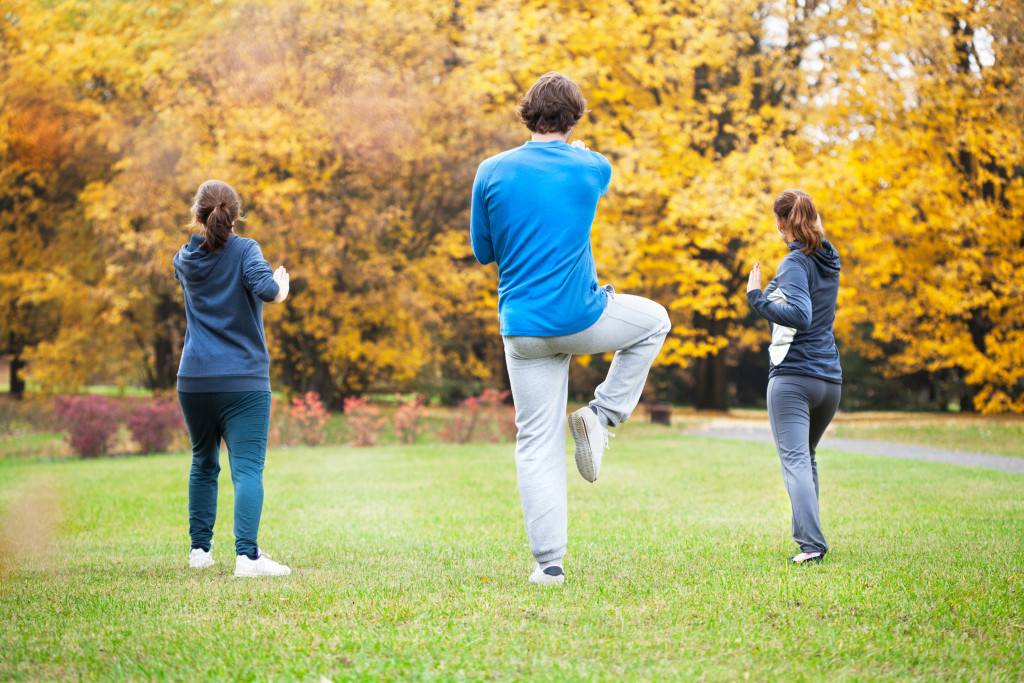- Identify the sources of your stress and devise strategies to address them.
- Maintain a healthy diet with plenty of fruits, vegetables, lean proteins, and whole grains.
- Incorporate physical activities into your routine for mood enhancement and tension relief.
- Practice mindfulness and meditation to stay present and develop a more balanced mind.
- Engage in relaxation techniques like deep breathing, progressive muscle relaxation, Tai Chi, yoga, and meditation to promote relaxation and reduce stress.
In the fast-paced world of today, stress seems inevitable. However, effective coping mechanisms can provide the tranquility and balance needed for a healthy life. This guide offers five practical tips to handle stress in a manner that safeguards your mental, emotional, and physical well-being.
1. Understand and Accept Your Stress
Firstly, acknowledging stress is paramount. Understand that feeling stressed is a common human experience, not a failure. Recognize and accept your feelings without judgment; this acceptance is the first step toward managing stress effectively.
Understanding stress also involves identifying its sources. Reflect on the aspects of your life currently causing tension and anxiety. By pinpointing the stressors, you can devise strategies to address them directly, mitigating their impact on your mental health.
2. Develop Healthy Eating Habits

What you consume significantly affects how you feel. A well-nourished body is better equipped to cope with stress, so adopt a balanced and healthy diet. Include plenty of fruits, vegetables, lean proteins, and whole grains to fuel your body with the nutrients for optimal function.
Avoid excessive caffeine and sugar, as they might provide a brief energy boost but are often followed by a sharp drop in mood and energy levels. Maintaining steady blood sugar levels can help you feel more energized and relaxed.
3. Incorporate Regular Exercise
Exercise is a powerful stress reducer. It enhances the production of endorphins, which are the body’s natural mood lifters. Incorporate physical activities that you enjoy into your daily routine, making it easier to maintain consistency.
Engaging in intense workouts is not necessary to experience the benefits. Even moderate activities like walking briskly, cycling through scenic routes, or practicing yoga can significantly enhance mood, boost energy levels, and effectively alleviate tension and stress. Incorporating these activities into your routine can provide a holistic approach to improving overall well-being and maintaining a healthy lifestyle.
4. Practice Mindfulness and Meditation
Mindfulness and meditation are excellent techniques for managing stress. They help you stay present, appreciate the moment, and avoid getting overwhelmed by future anxieties or past regrets. By practicing mindfulness, you can develop a more balanced and focused mind.
Allocate a few minutes every day to indulge in the practice of meditation. Sit comfortably, focus on your breath, and allow your thoughts to come and go without judgment. This practice can help you develop a sense of calm and clarity, which can be incredibly beneficial in managing stress.
5. Engage in Relaxation Techniques
Engaging in relaxation techniques is crucial for stress management. Techniques like deep breathing, yoga, and Tai Chi can help reduce stress.
Here are some relaxation techniques to utilize:
Deep Breathing
Deep breathing is one of the simplest and most effective relaxation techniques. Focusing on your breath can calm your mind and reduce stress. It involves inhaling deeply through your nose, holding your breath momentarily, and then exhaling slowly through your mouth. Practice this technique for a few minutes each day to promote relaxation.
Progressive Muscle Relaxation
Progressive muscle relaxation involves tensing and then releasing different muscle groups. Start from your feet and work your way up to your face. As you progress, you’ll likely feel relaxed and calm. This technique helps to alleviate tension, both physically and mentally.
Tai Chi

Tai Chi is an ancient Chinese practice that combines physical movements, mental focus, and deep breathing to promote relaxation, balance, and flexibility. Its gentle nature makes it suitable for people of all ages and fitness levels. You can utilize online Tai Chi classes to learn and practice this beneficial exercise from home. These classes will guide you through various Tai Chi postures and movements, helping you to find calmness and inner peace while releasing tension from your body.
Yoga and Meditation
Yoga combines physical postures, breathing exercises, and meditation to promote physical and mental well-being. Regular practice can help reduce stress, improve flexibility, and enhance your sense of balance. Meanwhile, meditation helps clear the mind, allowing you to focus on the present moment and foster a sense of peace. It’s a powerful tool that, with regular practice, can greatly improve your ability to handle stress.
In Summary
Managing stress effectively is imperative for maintaining a healthy and fulfilling life. You can navigate life’s challenges easily and comfortably by understanding and accepting your stress, nourishing your body with a balanced diet, exercising regularly, practicing mindfulness, and engaging in relaxation techniques. Each of these strategies offers a unique set of benefits, and together, they provide a holistic approach to stress management that supports your overall well-being.

